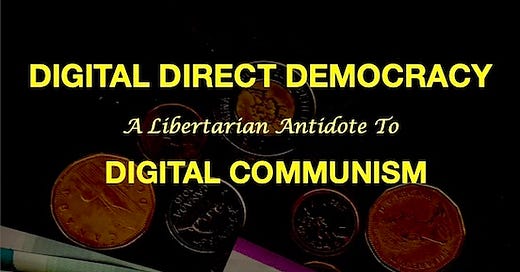Postal Service in Canada
American institutions, like the Postal Service, suffer from internal and external influences which erode public confidence and trust. In Canada’s public services monopolies, this is also true.
Postmaster General Louis DeJoy Stepping Down, Tells USPS Board to Find His Successor
This Epoch Times article was penned by journalist Chase Smith yesterday. I am sharing some of its contents below.
Louis DeJoy, the 75th postmaster general of the United States, has announced plans to step down, asking the Postal Service Board of Governors to begin the process of selecting his successor.
During his tenure, the Postal Service also launched new package shipping products and invested more than $18 billion in infrastructure modernization, including new processing, logistics, and delivery network designs. He acknowledged that some of these changes disrupted services but said they are necessary to ensure long-term sustainability.
DeJoy pointed to ongoing challenges, including industry resistance to change and a business model that had been broken for more than two decades. He stressed the need for continued transformation to align costs with service expectations.
“This, combined with industry lobbying, has held the organization back in the past from making the necessary changes. I have fought against this, and as a result I believe that I can fairly say that my tenure has been one of high expectations and vigorous action.”
Canada Post.
DeJoy’s comments about the challenges of the job comes as no surprise to anyone who has experienced the work environments of huge government bureaucracies. This challenges arise from:
Public sector labour unions are always hard at work to preserve their interests - to collect union dues from as many workers as possible by opposing any measure to increase productivity and improve decision-making than may reduce the need for so many workers.
Department managers also maneuver to protect their turf: large budget and as many staff as possible which define their “responsibilities” without any consideration for “results” that may directly serve the interests and priorities of taxpayers.
Third party special interest groups are always seeking ways to accrue self-serving privileges, funding, and regulatory benefits at taxpayer expense.
In Canada, I suspect the same dynamics exist at Canada Post. Resistance to change, arising from union influences and various lobby groups, serves to make “workers rights” a higher priority than “taxpayers rights”.
Do taxpayers pay taxes to preserve government jobs?
OR,
Are government workers employed to provide cost-effective services to citizens and businesses that cannot be otherwise offered by the private sector?
Modernization
Business models are undergoing a renaissance like never before in human history, and it’s just getting started as various form of AI are introduced throughout society.
In light of these advances, it’s time to reconsider the size, cost and scope of authority that Canadians which to assign to the public sector.
After such an audit, it is very likely that many existing government monopolies are no longer warranted.
Much talk around “defunding the CBC” is popular these days, but complete privatization of Canada Post should also be in the table. Too much “junk mail” is delivered by postal workers. In most mailboxes, advertising flyers and fund-raising letters from public institutions make up most of the mail bulk.
Why are taxpayers paying for the delivery of “junk mail”?
DOGE at all levels of government.
As our world changes from the capabilities of the Digital Economy, our public institutions must change in lockstep.
There are no acceptable excuses not to explore modern business models to get the best results for taxpayers.
Let’s begin an aggressive transformation of the public sector to remove all unnecessary “administrative bulk” from our economy.
I encourage everyone to read Digital Direct Democracy to set the national mood for such an important understanding. It is only 36 pages as a Kindle eBook and it sheds light on what is possible today. We can and must create a decentralized direct democracy to better serve every citizen according to his or her priorities, and to do so in ways that will significantly reduce the “footprint” of government institutions.




